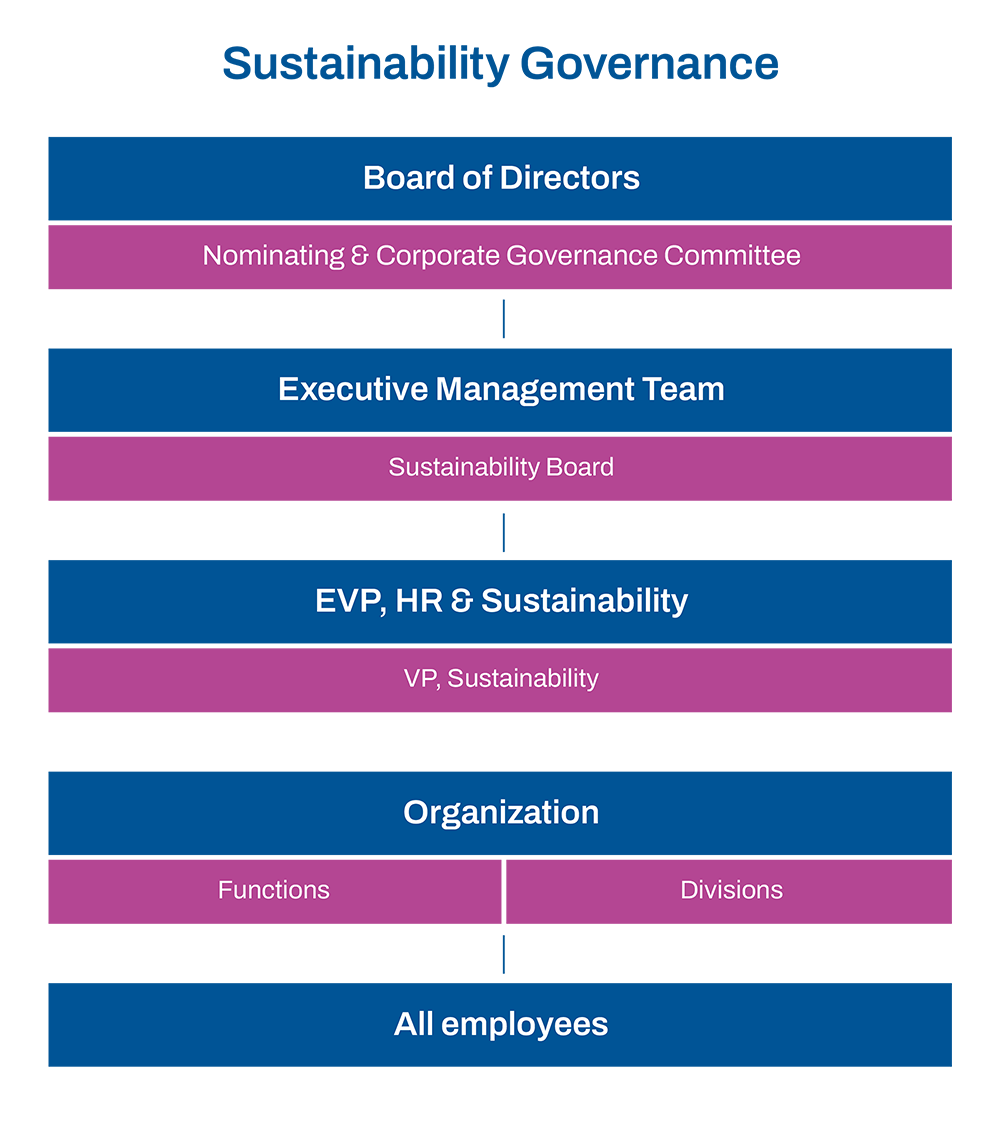
Autoliv’s sustainability work is managed within a well-defined governance structure, through clearly established ownership and responsibilities at multiple levels in the organization.
The underlying principle of our governance model is integrating sustainability responsibilities into the ordinary course of business and company processes. This means that ultimate responsibility for execution of sustainability activities and targets lies with the line organization and is regularly monitored through management reporting. According to our Key Behaviors, we expect every employee to take ownership of sustainability topics by proactively contributing improvement ideas as well as by following company policies and standards.
The ultimate oversight for the company’s sustainability activities lies with the Board of Directors. The Board sets the direction for sustainability activities and regularly monitors progress on Autoliv’s sustainability strategy and targets through its Nominating and Corporate Governance Committee (NCGC). The Board reviews and approves the Code of Conduct as well as the Annual and Sustainability Report and the Modern Slavery Act Statement.

Implementation responsibility for sustainability lies with the Executive Management Team (EMT). The EMT has appointed a Sustainability Board charged with providing direction and oversight. The Sustainability Board consists of the CEO and other EMT members and meets on a quarterly basis. The Sustainability Board reviews and approves Autoliv’s sustainability strategy, annual and long-term plans, targets and policies for key topics, and monitors implementation and performance.
Integration of sustainability into Autoliv’s business is led by the Group HR & Sustainability function. The Vice President Sustainability, who reports to the Executive Vice President HR and Sustainability, coordinates, develops and monitors Autoliv’s sustainability agenda and facilitates the Sustainability Board meetings and other sustainability-related reporting to management. Everyday sustainability topics are managed, as appropriate, by the HR & Sustainability function, divisions and other corporate functions such as supply chain management, research, development and engineering, and legal and compliance. Divisions and corporate functions have dedicated sustainability resources such as Environment, Health & Safety coordinators, life-cycle assessment (LCA) experts and supplier sustainability auditors.
Our sustainability work is guided by Autoliv's Code of Conduct and supporting policies.